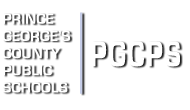…names transition team and serious concerns emanate

Kevin M. Maxwell, the Chief Executive Officer of Prince George’s County Public Schools.
Prince George’s County Schools Chief Executive Officer Kevin Maxwell has selected a transition team to analyze the school system and offer recommendations on how to move the struggling system forward.
The 32-member panel, which includes local and regional educators, is scheduled to hold its first meeting on Monday.
“This transition team will help me to determine the needs for the district and the appropriate next steps as it relates to key areas of school operations,” Maxwell said in a statement.
The committee will review data, conduct interviews, determine the district’s strengths and identify areas the need additional attention. It will also focus on teaching and learning, communication, how to use resources and the organizational structure.
Maxwell became the district’s eighth school superintendent in 14 years in August. He took over the system following a contentious debate over the future of the county schools.
Earlier this year, County Executive Rushern L. Baker III (D) asked the General Assembly to approve a bill that would give him control over the school system. Under a compromise bill, Baker received the power to select the schools chief, name three members to an expanded school board, and choose the board chair and vice chair.
The team members are:
Maryland Superintendent of Schools Lillian Lowery; Prince George’s Deputy Superintendent Monique Davis; Prince George’s County Community College President Charlene Dukes; Douglass Anthony, the executive director of the school system’s Human Capital Management; Maritza Gonzalez, the school system’s Latino affairs officer; Max Pugh, the school system’s acting communications officer; Pamela Shetley, the director of Human Capital Management; Frederick Douglass High School principal Rudolph Saunders; Oxon Hill Middle School principal Wendell Coleman; Cesar Chavez Elementary School principal Jose Taboada II; Gladys Noon Spellman Elementary School principal Susan Holiday; Albert Lewis, the 2013 Teacher of the Year; Earnest Moore, the president of the county’s PTA Council; Kenneth Haines, president of the Prince George’s County Educators’ Association; Shirley Adams, president of AFSME (Local 2250); Carnell Reed, president of SEIU (Local 400); Dwayne Jones, president of the principals’ union; Rukayat Muse-Ariyoh, the student school board member; Betty Morgan, the former Washington County school superintendent; Lethia Jackson, who works in the computer science department at Bowie State University; Diane Lee, the vice provost and dean of Undergraduate Education at the University of Maryland in Baltimore County; Linda Ferrell, the former deputy chief of teaching and learning for the District of Columbia Public Schools; Joe Hairston, the president of Visions Unlimited and former Baltimore County school superintendent; Aggie Alva, vice president of product marketing and communications at Discovery Communications; Leslie Fenwick, the dean of the School of Education at Howard University; Shawn Joseph, the superintendent of the Seaford School District in Delaware; Zakiya Lee, assistant to the senior vice chancellor at the University System of Maryland; Pat Martin, assistant vice president of the College Board; Christian Rhodes, Baker’s education policy advisor; Susan Marks, the former superintendent of the Norwalk School District in Connecticut; Donna Wiseman, dean of the University of Maryland College of Education; Bob Wise, the former West Virginia governor of president Alliance for Excellent Education.
The transition team is scheduled to finish its work in December and submit a report to the Board of Education. >>> Read more Washington Post
OPINION
Reform Sasscer Movement for Prince George’s county is challenging Prince George’s county citizens to be prepared to make sacrifices for their county and to protect the gains already achieved while they seek for more. We must make sacrifices to build on the gains achieved so far and learn from America’s experiences especially in the field of protection of rights and decentralization of power and resources.
Martin Luther King Jr., George Washington and others who fought for freedom knew that freedom is not given; it must be won through struggle, persistence and faith in the future.
As we have mobilized political leaders, we have been a witness to history. In our own small way, we have contributed to the history of our county. We have been a witness as the tide of history turned in our county as a model for others. As participants in some of the events that changed our county school system. As residents and workers we have pushed forward toward freedom and we can tell you nothing comes easy, and surrender cannot be an option at this time.

Dr. Lillian M. Lowery Maryland State Superintendent of schools has been criticized for showing very poor leadership skills in various ways and received an F grade for Common Core meetings so far.

Maryland State Board of Education President Dr. Charlene Dukes shown here has demonstrated a culture of corrupt leadership style and continues “an integrated pattern of pay to play” and manipulation.
Now this brings us to the raging debate on why an appointment was made of such a large group (32) to review an issue which led to the appointment of Dr. Kevin Maxwell as the CEO of Prince George’s County public schools. Before he interviewed and accepted the job, we had already identified “the top priorities“. So what happened? In our honest opinion, this appointment of two of the top leadership (Dr. Lillian Lowery and Dr. Charlene Dukes) to run the affairs of the county is dishonest, misplaced and hypocritical. First, Charlene Dukes who served as a previous Board member during a time of high levels of corruption should be viewed with a lot of suspicion. Why would any leader thrive in the suffering of his or her people who either freely elected him or her or surrendered all authority to him or her to govern? What was the purpose of appointing the expanded Board of Education and their supposedly expertise of some of the new members? If a grievance arose of such a group who will resolve it given Dr. Lillian Lowery and Dr. Charlene Dukes are supposedly neutral of which they are not? Isn’t what they are doing illegal and creates a conflict of interest? Why appoint someone and then follow him to throw your power/ weight around? Where is the outrage?
The current group led by Dr. Charlene Dukes and Dr. Lillian Lowery is comprised of a bunch of people without a clue of what has been going on. While some of them are good men and women, How are they going to make recommendations to solve a problem within the county they do not even understand or believe in themselves? The people of Prince George’s County needs a chance to come up with their own solutions. Top of their list should be eliminate the current group (32) which has their own selfish agenda to derail the progress made so far. The Unions need to be reformed first, we do not expect them to shoot themselves on their feet. Do you? How about Mr. Dwayne Jones (President ASASP) mentioned in our blogs? Does anyone in their right mind expect him to reform the principal’s union? Mr. Jones does not even have time to add a message to his followers on the website. We do not think so…
The Washington post article mentions that, “The transition team is scheduled to finish its work in December and submit a report to the Board of Education.” The poor unfortunate Prince Georges children and their parents deserve better than this. Take a look at some of those names on the “team”. Same people with the same philosophy. This is the ultimate definition of insanity. This was never about anything but raw political power to some of these people.
Power, they say, does not flow along the lines of an organization’s organograms; power is fluid and often asymmetrical.
Access is power, those who have unlimited access to leaders often tend to have more power and influence on decision-making processes than elected leaders holding seemingly powerful positions.
As political historian Hedrick Smith writes in his book, The Power Game – HowWashington Works’ access to a president means involvement in major decisions and actions of the State. Smith writes the most vital ingredients of power are often intangible. Information is power. Visibility around the president or his deputy is power and so is access to the inner sanctums of government.
The fear of political manipulation and arbitrariness in Prince George’s County Board of Education duties has led several Board members to question the new order of doing Business. They are correct. The HB1107 did not create space to include such a large number of personal friends to investigate themselves.
A great deal of criticism should be directed at the Maryland state Board of Education by various parties as a result of several errors committed by the state agency in managing the affairs of the county and Maryland as a state.
In our view and consistent to those expressed by many others, beyond seeking justice, we must entertain self-preservation as a key motive of the Maryland state Board of Education. The Maryland state Board of Education must demonstrate results to funding county Boards and various interest groups. This motive raises the probability of miscarriage of justice and selective prosecution as is quite apparent in the several cases lately.
Under the current structure, Maryland state Board of Education is likely to continue losing support. Its scope of powers and especially the office of the Attorney General is too broad and wide open to political manipulation that it would be irrational to expect fair adjudication of justice.
Unless serious reforms are undertaken to ensure Maryland state Board of Education can be trusted to execute justice fairly, it will continue digging its own grave and in the process undermining justice.
In essence, Folks, there’s no more doubt. Maryland state Board of Education is its own worst enemy and living to the claims of a state agency. It does not have the capacity and the expertise to do what is right for the children of the state of Maryland. The time to act is now. We have got a runaway state board of education with no oversight, not subject to election, and doing reforms not subject to legislative review. All without citizen input nor consent. And wielding a billion dollar budget. The future of Maryland state Board of Education is either radical reforms or a funeral. We must say “NO” to the latest shenanigans.
When you see us pushing for these things, we hope you will understand where we are coming from. We have seen freedoms taken away and opportunities frustrated and killed and we have learnt that if we sit back, nobody will apologize and say sorry. The powerful just move on while the poor and the weak suffer.
###
























